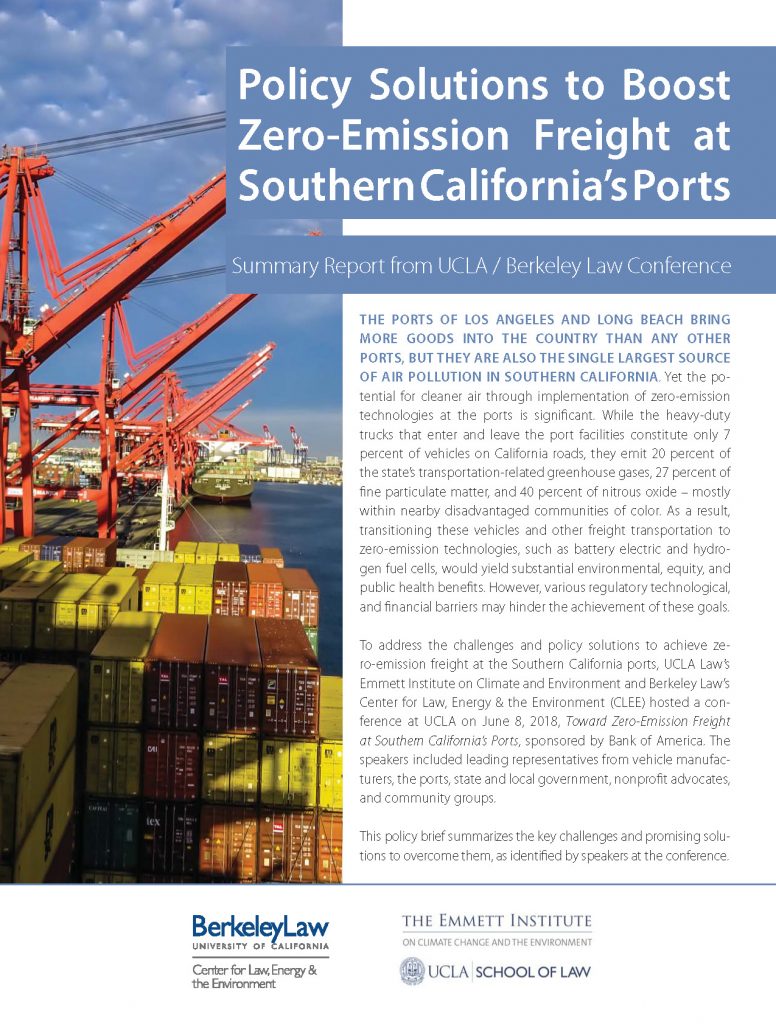 UCLA and UC Berkeley Schools of Law have released a new policy brief that describes the top challenges and solutions for deploying zero-emission freight technologies at Southern California’s ports. Policy Solutions to Boost Zero-Emission Freight at Southern California’s Ports summarizes the key findings from a conference on the topic at UCLA on June 8th.
UCLA and UC Berkeley Schools of Law have released a new policy brief that describes the top challenges and solutions for deploying zero-emission freight technologies at Southern California’s ports. Policy Solutions to Boost Zero-Emission Freight at Southern California’s Ports summarizes the key findings from a conference on the topic at UCLA on June 8th.
The Ports of Los Angeles and Long Beach bring more goods into the U.S. than any other port in the country. Yet together they represent the single largest source of air pollution in Southern California. While harbor commissioners have adopted an ambitious plan to transition to cleaner fuels for port-based freight in the next two decades, achieving the vision will require hard work.
The brief summarizes the top three challenges to deploying zero-emission technology at the ports, such as battery-powered trucks, as discussed by speakers at the conference:
- Lack of charging and fueling infrastructure deployment
- Uncertainty regarding technological and economic feasibility of zero-emission technology
It then describes the top solutions (more detail in the policy brief) that speakers raised:
More infrastructure funding and community engagement
More pilot project funding to address technology needs and costs
Strategic roll-out of new technologies with greater stakeholder engagement
The conference that informed the brief was organized by UCLA Law and UC Berkeley Law, with sponsorship from Bank of America. Speakers included a keynote by California Air Resources Board chair Mary Nichols, as well as the CEOs of ProTerra, Total Transportation Services, Inc. (TTSI) and the Coalition for Clean Air. Also included were representatives from:
- Bank of America
- California Trucking Association
- Earthjustice
- Port of Long Beach
- Southern California Edison
- Tesla Motors
- Union of Concerned Scientists
And for more information on sustainable freight, please see Berkeley Law’s Delivering the Goods: How California Can Create the Sustainable Freight System of the Future (March 2018). You can also read my colleague Ted Lamm’s Capitol Weekly op-ed on the subject, as well as view the webinar on the Delivering the Goods report release:


